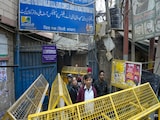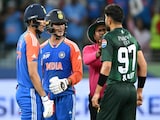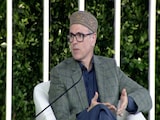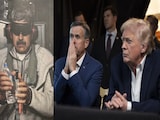(Yashwant Sinha is a BJP Member of Parliament and a former Union Minister of External Affairs)
Mercifully, the Lok Sabha elections have finally ended. The cacophony of voices has been stilled. The results will come soon and we will have another round of excitement before the country settles down to serious business.But some issues will remain. Let us deal with a few of them. (Also read: The World's Largest Election - 5 Qs and As)
The constitution of India provides for popular rule by the elected representatives of the people. In the case of the states, there is the provision of President's rule for exceptional circumstances.
But we have a new kind of rule in our country now--- Rule by the Election Commission. Given the fact that Lok Sabha and Vidhan Sabha elections are now not necessarily held together, some election or the other is always taking place in some part of the country . So, we have Election Commission rule in force somewhere in the country almost all the time.
The election code of conduct should end soon after the results of the Lok Sabha elections are declared on May 16. But elections are due in Jharkhand in December this year. The Election Commission should announce the schedule of elections some time in October, if not earlier, so we shall revert to Election Commission rule.This will put an embargo on all policy pronouncements, all new schemes, all new appointments, all transfers and postings of officials; in fact all administration will come to a stand-still, including development administration. Then there are local bodies' elections with their own code of conduct. Then there are religious festivals, marriages, cricket matches and other celebrations.
When do we work? Rarely, and that too when we see our own benefit in it. Any wonder why we are where we are?
In 1980, I was posted as Principal Secretary to the Chief Minister of Bihar, Ram Sunder Das. Elections to the Lok Sabha had been announced. A politico-administrative decision was taken to transfer the Chief Secretary and the Director General of Police (DGP). Predictably, the Election Commission protested strongly. We had done our homework on the legal- constitutional side. So, we wrote an equally strong letter rejecting the objection raised by the Commission and making the point that the two officers were not directly connected with the conduct of elections and therefore the Commission had no jurisdiction over them. The Commission did not revert.
In 1991, Chandrashekhar announced the resignation of his Government on the floor of Lok Sabha, and before proceeding to Rashtrapati Bhavan, he came briefly to his office in Parliament House. Manmohan Singh, who was his Economic Advisor, was worried about his own future. Chandrashekhar asked him what he could do for him. Manmohan Singh told him that the post of Chairman, University Grants Commission was lying vacant and he could be appointed to that post. Chandrashekhar did not go to the Election Commission. He took the approval of the President of India and appointed him to that post.
In 1999, Atal Bihari Vajpayee decided to go ahead with the implementation of the New Telecom Policy which had been announced earlier and approved the migration package. The decision was allowed to stand even by the courts of law. Compare all these examples with the present Government approaching the Election Commission, seeking its approval for appointing the Chief of Army Staff. (Op-Ed: Why the New Army Chief Should Be Named By the New Government)
Nature abhors a vacuum. The more the Executive surrenders its authority, the more the other organs of Government will encroach upon it. I am not endorsing, even for a moment, that there should be executive despotism. But all organs of governance must stay within their constitutional limits. The time has come to define these boundaries.
Firstly, a lot of electoral reforms have already been done though a lot remains to be done. Voters have become conscious of their rights and the power that the right to vote confers. Malpractices at the booth level, so rampant in the past, have greatly declined though a lot remains to be done still. So, elections need not be so prolonged. (Key Dates in India's Record-Breaking Election Marathon)
This year also, elections could have been conducted in four or five phases at the most. In future, the Commission must aim to hold elections in one or two phases only. The code of conduct should end immediately after polling ends unless there is repolling in some booths.
Secondly, when the government goes into the caretaker mode it should consult the President on issues which it thinks fall within the purview of the Code. If the President so feels, he could consult the Election Commission informally and advise the government accordingly.
If a Prime Minister could appoint the chairman of the UGC after consulting the President, why can the government not do so in the case of the army chief instead of seeking the approval of the Commission?
Thirdly, the cabinet secretary, after studying all the circulars issued on the subject, should try and codify what a government can or cannot do when in caretaker mode.
Finally, the Commission should be made accountable to some authority even when elections are on i.e. a special bench of the Supreme Court set up for the duration of the elections where aggrieved parties could go for quick justice.
Disclaimer: The opinions expressed within this article are the personal opinions of the author. NDTV is not responsible for the accuracy, completeness, suitability, or validity of any information on this article. All information is provided on an as-is basis. The information, facts or opinions appearing in the article do not reflect the views of NDTV and NDTV does not assume any responsibility or liability for the same.
This Article is From May 12, 2014
Why is Election Commission Governing India?
Advertisement
Yashwant Sinha
- Opinion,
-
Updated:May 12, 2014 15:07 pm IST
Topics mentioned in this article















